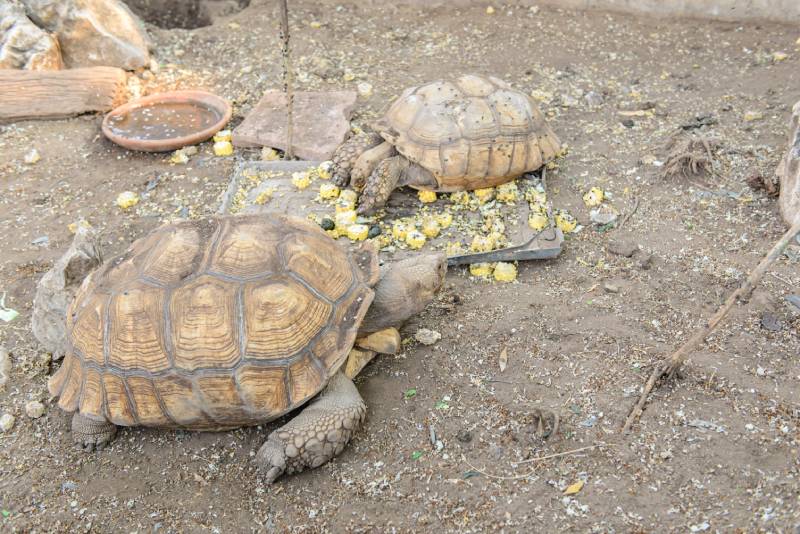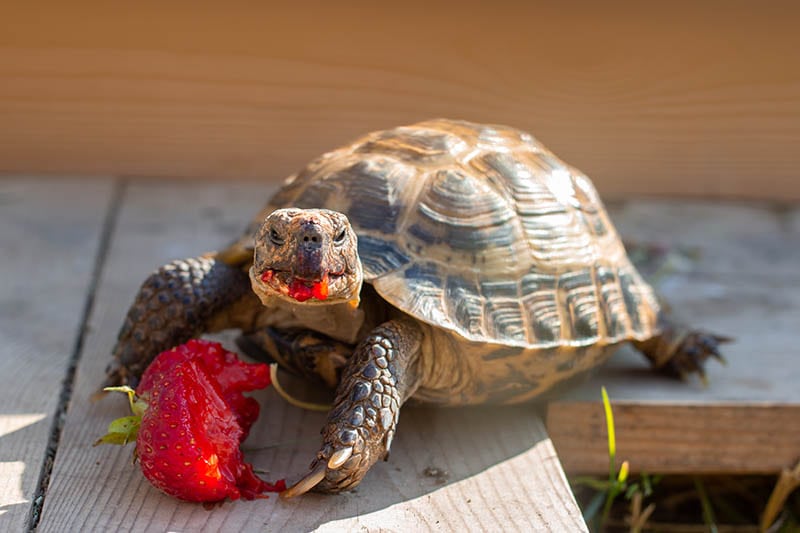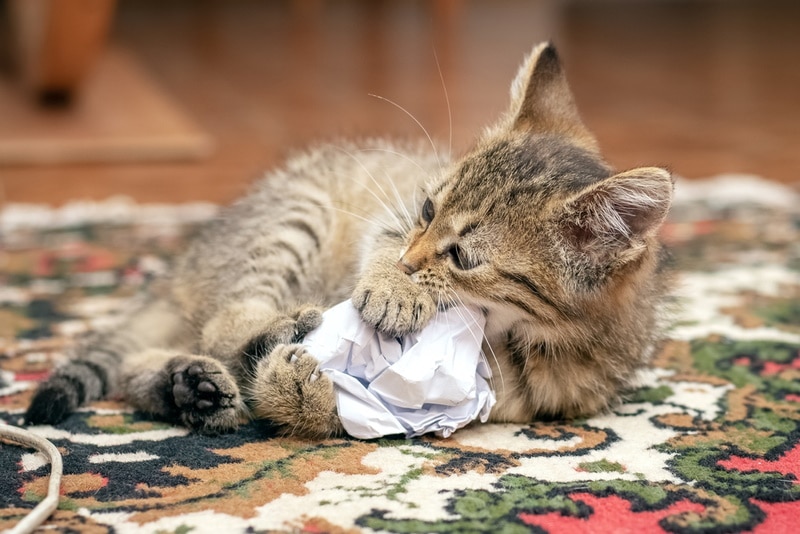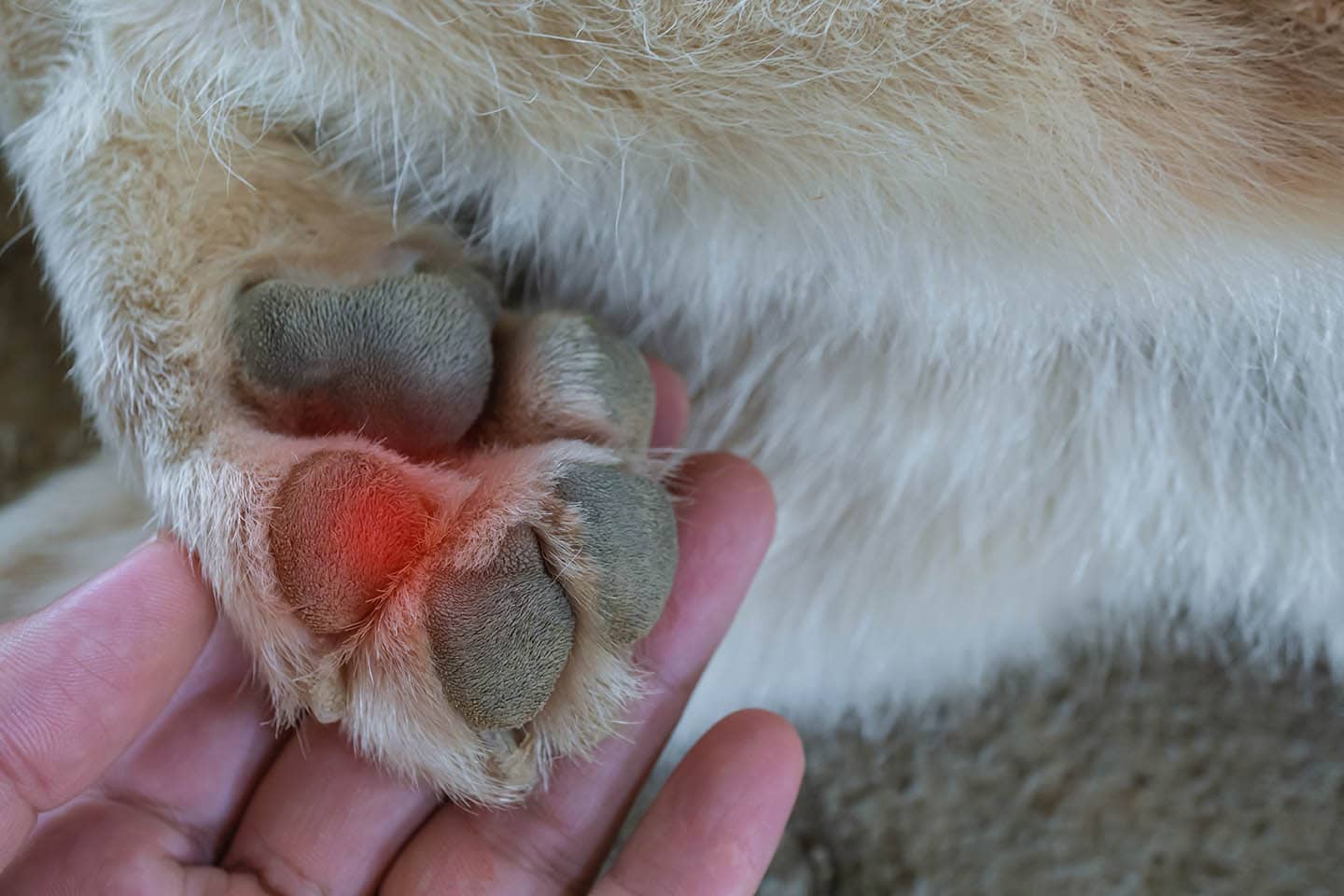Can Tortoises Eat Oranges? Our Vet Explains
By Dr. Luqman Javed, DVM (Vet)
Updated on

Oranges are juicy and refreshing, but like most other fruits, oranges should only be offered to your tortoise in moderation.
The intricacies of adding fruit to your tortoises diet is somewhat difficult to master. As a general rule, all fruit that is safe to eat should only be a very small portion of your tortoise’s diet. Therefore, even if a fruit is safe for their consumption, you shouldn’t go overboard with offering it to them.
Read on as we explore a tortoise’s diet in greater detail.
Can Tortoises Eat Orange?
As a general rule, there are many fruits which are safe for tortoises. However, almost all fruit is very nutritionally dense and while this might sound appealing, it’s important to note that overnutrition is just as detrimental to a tortoise’s health as malnourishment or lack of nutrition.
Oranges are no exception to this rule. Though safe for consumption, they are not something that you would want to overboard with.
Examples of other fruit you can feed your tortoise are:
- Pears
- Apples
- Grapes
- Melons
- Mangos
- Peaches
- Pears
- Strawberries (generally a favorite)
Fruit is a favorite treat, but feed your tortoise in moderation and remember, if they are eating something with a pit, like a cherry, be sure to remove it first to avoid choking.

Feeding Your Tortoise Orange
Feeding your tortoise orange is relatively easy.
- Always opt for fresh oranges. Do not offer your tortoise orange juice, orange candy, or orange-flavored foods (remember that items made for human consumption can be flavored with substances that aren’t safe for your pet).
- Thoroughly wash the fruit
- Slice the orange to a small cube, a cube around 1 cm in size is preferred for small tortoises, whereas larger tortoises can obviously be offered a slightly larger portion.
- You should not offer your tortoise the seeds or the skin of the fruit.
- It’s best to offer your tortoise their orange piece as part of a fruit bowl. Variety in your tortoise’s diet is prudent to keep them healthy.
- Keep in mind that fruit spoils and sludges very quickly, and therefore, you should discard any uneaten fruit after around 4 hours at most. If your tortoise is housed in a particularly warm environment, the fruit may spoil and sludge very quickly and shouldn’t be left out for more than an hour or so.
What Is the Recommended Tortoise Diet?
Every tortoise’s diet will be a little different, but the majority will be made up of fresh vegetables like dandelions, bell peppers, kale, cauliflower, and collard greens. Fresh fruit will comprise a very small portion of their overall diet, and the rest will be commercial tortoise food or other sources of protein, as needed. Their diet can be summarized as follows:
- Vegetables – should comprise around 85% of your tortoise’s diet. Suitable vegetables include dark leafy greens such as mustard, carrots, collard, turnip tops, dandelions, bok-choy, roses, hibiscus, and cured alfalfa or timothy hay.
- Fruits – should comprise around 10% of your tortoise’s diet in most cases. However, it can be increased to around 20% for red and yellow-footed tortoises. Examples of acceptable fruits include grapes, oranges, pears, melons, strawberries, bananas, mangoes, and tomatoes.
- High Protein Foods – a small fraction (5%) of your tortoise’s diet should focus on meeting their protein needs with items like dry commercial tortoise pellets, tofu, scrambled eggs, and a few acceptable cereals. This amount can be increased to around 10% for the hinged-black, angulate, brown, and impressed tortoise.
Please note that this is just a general guideline, you should always consult your veterinarian to come up with a diet plan that works for your tortoise. Factors such as your tortoises’ health status, age, reproductive status, the time of year (if they’re outdoors), and any history of illness all impact their nutritional requirements. It is important to note that foods that are often marketed as healthy for humans might not offer the same benefits to your pet. Therefore, it is important to seek professional advice before adding a new food to your tortoise’s diet.

Final Thoughts
Unfortunately, tortoises can’t eat oranges and should stay clear of all citrus fruits; the acidity is too high for their systems to handle. Fresh fruit is an excellent treat that your tortoise will enjoy, and there are many they can safely eat. However, be aware that they should be enjoyed in moderation since fruit is high in sugar and can cause digestive problems.
Also See:
- Can Tortoises Eat Strawberries? Vet-Reviewed Nutrition Facts & FAQ
- Can Turtles Eat Corn? Vet-Reviewed Nutrition Facts & FAQ
Featured Image Credit: CoreRock, Shutterstock












